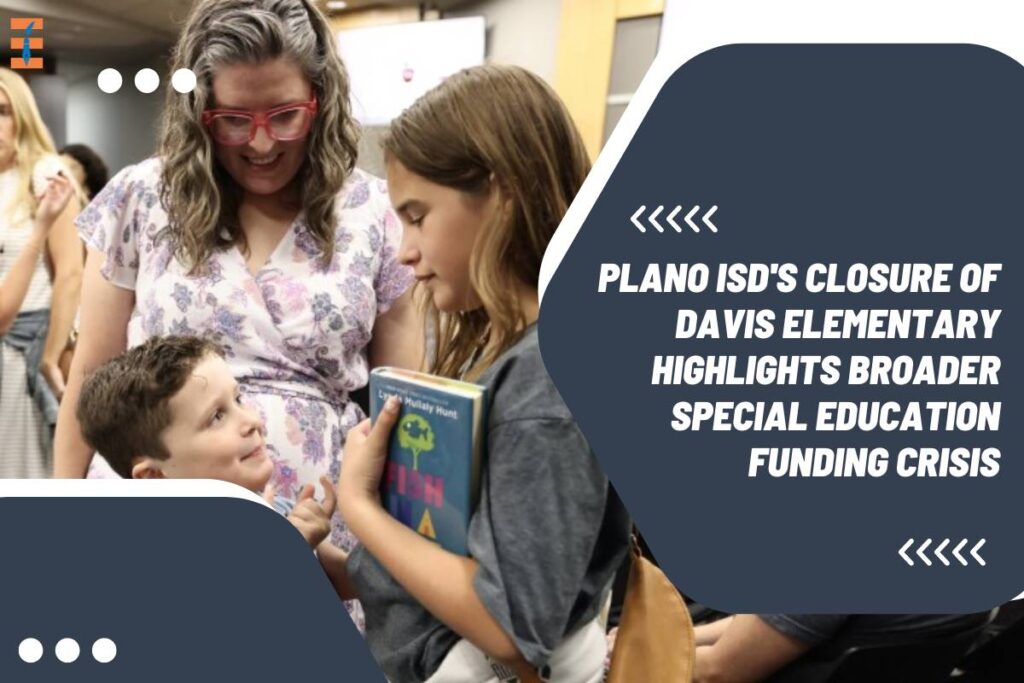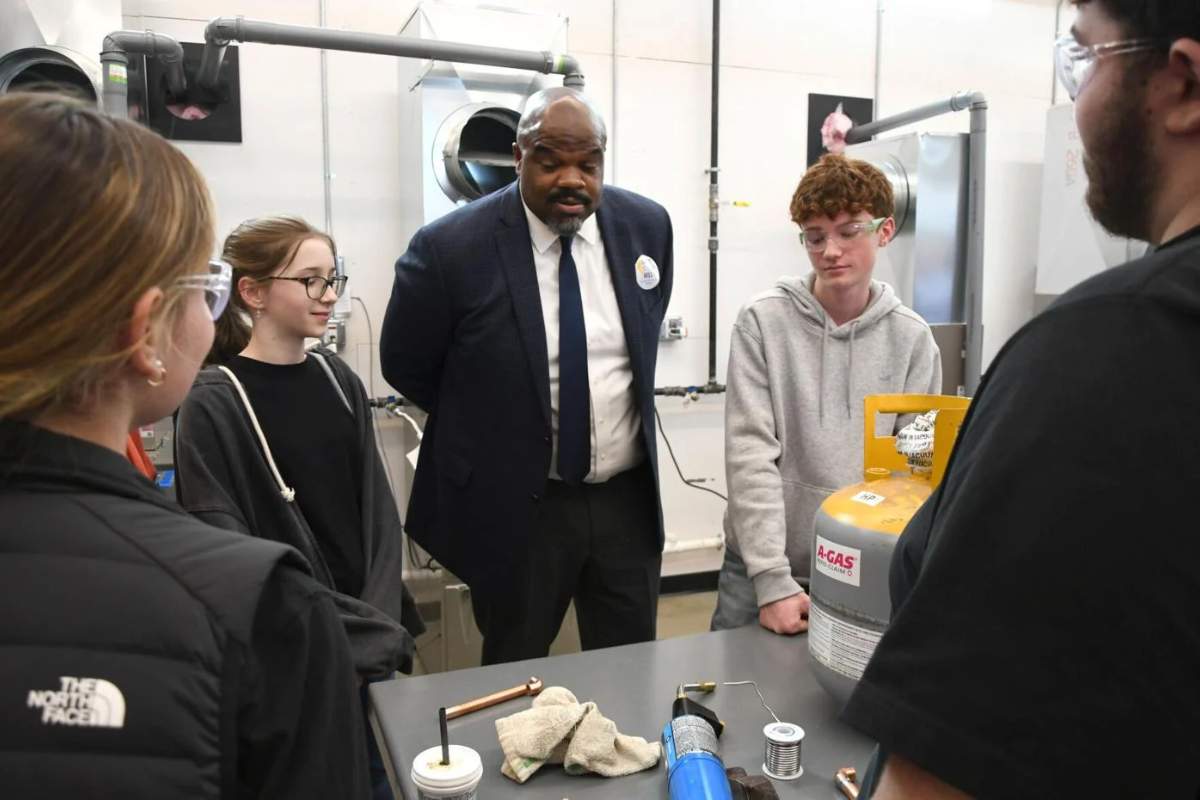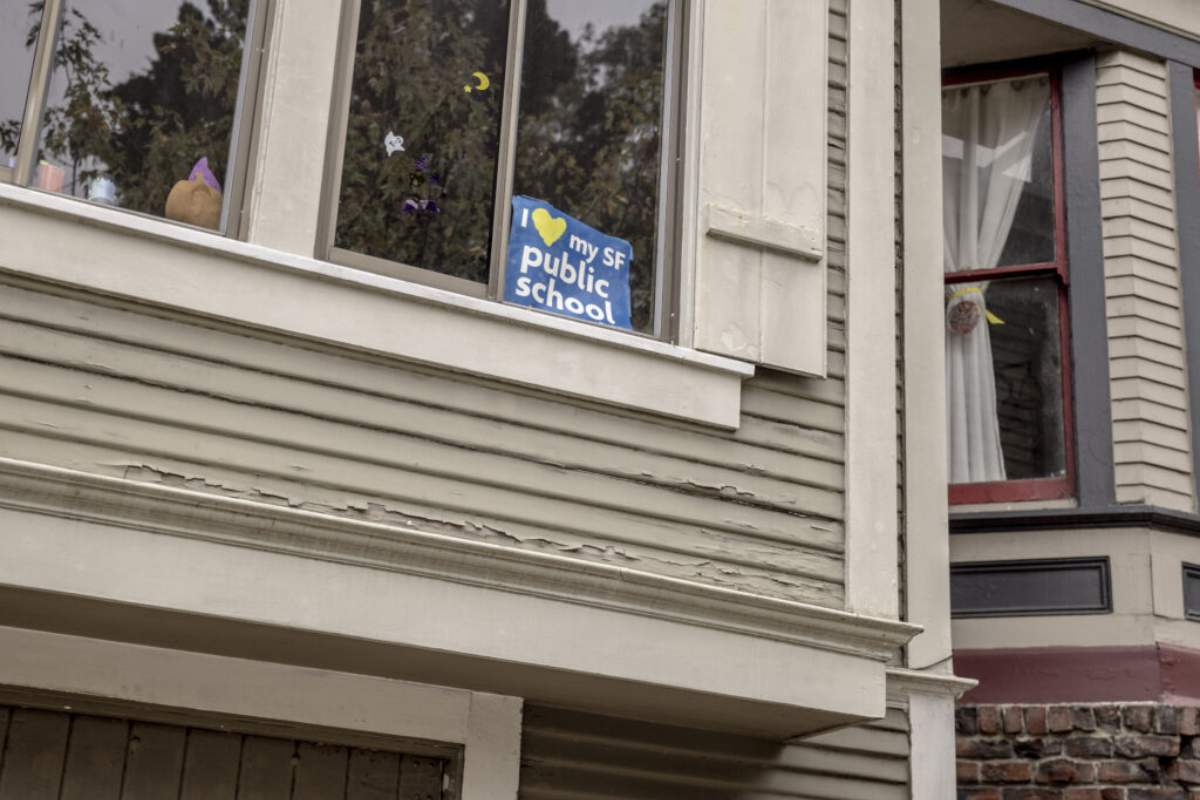Source- KERA News
Plano ISD’s decision to close Davis Elementary, along with three other schools, underscores a broader crisis in special education funding in Texas. Shawnda Kracja, a concerned parent, expressed her dismay at the decision, highlighting that her daughter, an incoming third grader at Davis Elementary, is at risk of losing a supportive and inclusive environment. Davis Elementary has been home to a regional day school program for deaf and hard-of-hearing students for decades. However, budget constraints have forced the Plano ISD board of trustees to relocate these students to Harrington Elementary starting in the 2025-2026 school year.
The issue is not unique to Plano. School districts across Texas are grappling with funding shortfalls that affect their ability to provide adequate special education services. Disability advocates point out that special education funding in Texas is approximately $2 billion short, compelling school districts to bridge the gap themselves. This financial strain is exacerbated by the increasing number of students enrolling in special education programs since the removal of the state’s 8.5% cap on special education enrollment in 2018.
Steven Aleman, a senior policy specialist with Disability Rights Texas, emphasizes that the costs associated with special education are significantly higher, yet state and federal funding remains insufficient. The gap between what it costs to educate students with disabilities and the state’s financial support is considerable, amounting to about $2 billion. Additionally, Texas schools lost $300 million in federal special education funds last year due to a Medicaid overbilling issue, further straining resources.
Impact on Community and Teaching
The transition from Davis to Harrington Elementary is more than a logistical challenge; it disrupts a well-established, inclusive community. Liz Whitaker, an incoming fourth grader who is not deaf, has learned sign language to communicate with her friends, exemplifying the inclusive culture at Davis. Kracja notes that her daughter is seen as just another student, not singled out for her deafness, a culture that took years to cultivate.
The move to Harrington will require teachers to adapt to the needs of deaf and hard-of-hearing students, a task that Sarah Wainscott, an assistant professor of deaf education at Texas Women’s University, acknowledges will be challenging. Teachers at Davis are already equipped with tools like ASL interpreters and specialized hearing aids, tailored to their students’ needs. Wainscott underscores the importance of having experienced teachers who intuitively understand these requirements, describing it as a “game changer.”
Despite extra funds allocated in the state budget for regional day programs, Aleman argues that these resources are still insufficient. The cost of teaching students who are deaf or hard of hearing is notably higher due to advanced, albeit expensive, technology. Plano ISD’s decision to close Davis Elementary is seen as a necessary financial step, expected to save the district approximately $5.2 million annually. However, the decision is a poignant reminder of the broader financial pressures that necessitate such actions.
The Broader Implications and Future Challenges
Plano ISD’s financial challenges are part of a larger trend affecting many Texas school districts. Declining enrollment in districts like Irving and Richardson has led to similar school closures. Fewer students mean less funding from the state, making it financially unsustainable to keep certain schools open. Plano ISD has seen a decrease of 7,700 students over the past 12 years, with projections indicating a further decline of over 3,000 students in the next five years. Currently, there are about 18,000 open seats in Plano schools, a number that could rise to 21,500 if no action is taken.
The closure of Davis Elementary was an emotional decision, met with tears and frustration from parents and school board members alike. Yet, the stagnant basic allotment of $6,160 per student, unchanged since 2019, fails to keep up with rising costs due to inflation. A proposed bill in the Texas House aimed to increase the basic allotment and update the special education funding formula but stalled due to political disagreements over school vouchers.
The challenges faced by Plano ISD and other districts highlight the urgent need for comprehensive solutions to the special education funding crisis. Dylan M. Rafaty, president and CEO of the North Texas Disability Chamber, acknowledges the concerns but encourages a broader perspective. He stresses the importance of preparing students for the realities of an inclusive but challenging society. Rafaty believes that with adequate support, deaf and hard-of-hearing students can thrive and advocate for themselves, fostering a community that embraces and supports their needs.
Also Read: California Charter School Battles Intensify Amid Squeezed Education Finances










